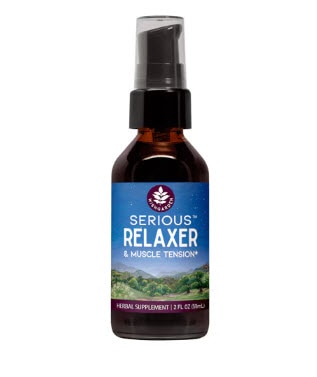People carry stress in different areas of their bodies. Some have it in their shoulders, neck or lower back. Carrying stress in these areas can manifest in body aches, pain and discomfort. Similarly, if you have stress in your jaw, as many people do (think clenching your jaw or grinding your teeth), you may develop a temporomandibular joint (TMJ) disorder or jaw pain.
Your TMJ is the joint that connects your jaw to your lower skull, with a TMJ on each side of your head. When these joints and supporting muscles are inflamed or compromised, you may experience a range of uncomfortable feelings, including pain or tenderness in your jaw, ear, head, neck or eye.
Pain or discomfort related to these joints are collectively called TMJ disorders or TMD. Symptoms can range from mildly uncomfortable to severe pain and lockjaw. Fortunately, there are ways to prevent and treat this common condition.
What causes jaw pain?
Sometimes, TMD is the result of an injury. But, in most cases, people start to feel pain and tenderness in their jaw without prior injury or traumatic events. Usually, there is no one cause of TMD, but stress is often a component. One study that found stress, anxiety and depression were all significant factors in developing TMD, but stress was the most common one.
Other causes include:
- Arthritis in your jaw
- Overbite or underbite
- Grinding your teeth at night or during the day
- Clenching your jaw
- Poor posture
About 5% to 12% of adults experience some sort of TMJ disorder. While anyone can experience TMD, It’s twice as common in women than men and often strikes people between 20 and 40 years old. Considering twice as many women report feeling stressed as men, according to a study published in The Journal of Brain & Behavior, it’s not surprising that TMD affects women more than men.
TMD symptoms
In addition to jaw pain, some people feel pain in areas near the jaw, such as the neck, ear, teeth, head and face. Pain can be dull and achy or intense and acute. In some cases, people experience a popping or clicking sensation when they open their mouth.
Other symptoms include:
- Ringing in your ears
- Migraine headache
- Stiffness in your jaw
- Difficulty chewing and swallowing
- Difficulty opening and closing your mouth
For many, these symptoms are temporary and resolve without treatment. Others experience chronic pain that interferes with their daily lives.
What you can do to relieve jaw pain
While surgery is an option for severe TMD symptoms that don’t resolve on their own or with nonsurgical treatments, many people can resolve their symptoms with a combination of noninvasive or minimally invasive treatments. Research shows that only 5% to 10% of TMJ patients require treatment and 40% experience spontaneous resolution of symptoms.
The first line of treatment for sore jaw joints and muscles is similar to nonsurgical treatments for other sore muscles. Start with over-the-counter pain and anti-inflammatory medications such as ibuprofen, acetophetmine or naproxen. Depending on your symptoms, the following additional treatments may help reduce pain, discomfort and jaw strain.
Rest your jaw (as much as possible)
While it’s difficult to completely stop jaw movements like talking and eating, try to be gentle with your jaw. Relax your tongue and jaw when possible and don’t yell, sing, chew gum, yawn widely or take large bites of food. Additionally, stick to soft foods small bites and liquids.
Apply heat or cold compresses
Ice helps reduce swelling and inflammation, and heat promotes relaxation. You can alternate or use one for about 15 to 20 minutes at a time to help relieve pain and promote rest.
Stretch and strengthen
Physical therapy can help you gently stretch your jaw so it’s gradually less stiff without causing more harm or trauma. Additionally, a physical therapist can help strengthen the surrounding muscles with specific exercises, lessening the strain on your TMJs.
Reduce stress
If you find that you’re clenching and grinding your teeth at night or during the day, those actions may be a manifestation of stress. Using stress-reducing techniques such as meditation, deep breathing and other mindfulness practices, you can help minimize the tension causing TMJ pain.
Prescription medications
If OTC medications don’t help reduce pain and symptoms, your doctor may recommend prescription medications such as muscle relaxers and antidepressants. In low doses, certain antidepressants can help lessen pain and reduce teeth grinding.
Nonsurgical treatments
There are a variety of noninvasive treatments to help relax your muscles, reduce inflammation and promote blood flow to your jaw muscles and joints. These treatments include dry needling, cortisone injection, ultrasound therapy, transcutaneous electrical nerve stimulation or TENS.
If you continue to suffer pain in and around your jaw and face, and nonsurgical treatments are not helping, your healthcare provider may recommend a minimally invasive or surgical procedure to help you resolve chronic pain and symptoms.




